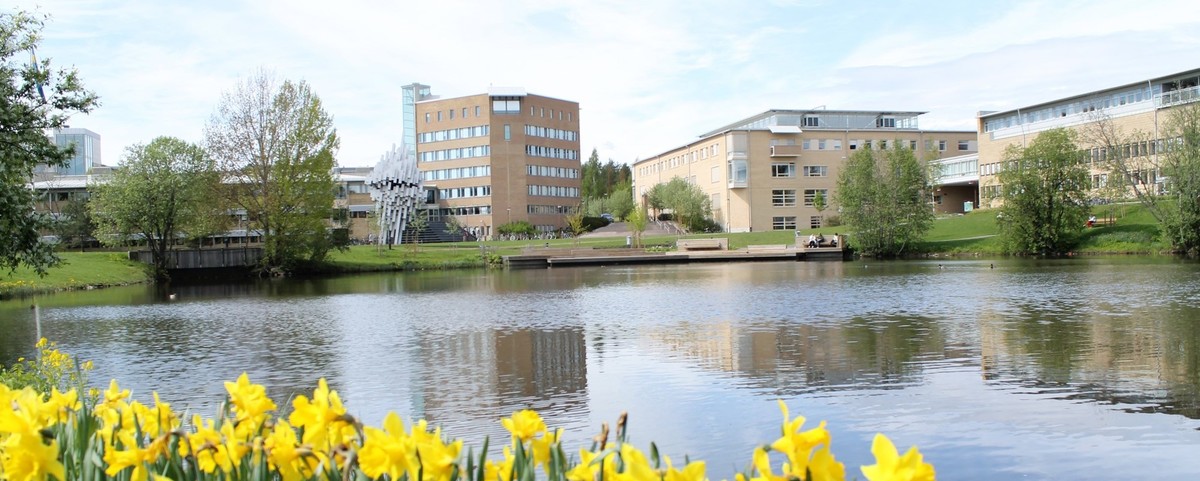Postdoctoral position in connective tissue biology - Hiring in process/Finished, not possible to apply
This advert is not available!
Umeå University, Medicinska fakulteten
The Department of Surgical and Perioperative Sciences conducts research and education in the fields of anaesthesia and intensive care, surgery, clinical physiology, hand and plastic surgery, orthopaedics, and urology and andrology. We are now looking for a postdoctoral fellow in connective tissue biology with a focus on biochemistry. The position is a 2-year full-time fixed-term appointment. You will be active in a patient-centered research project that aims to investigate how individual molecular biological differences in connective tissue structure and turnover may be linked to the development of hernias and other defects in abdominal wall strength.
Project description
CLISTER (Clinical Surgical Trials Epidemiological Research) is a research group focusing on patient-oriented surgical research. We are based in Umeå, but we have members and collaborators in several parts of Sweden and the Nordic countries.
In recent years, our group has conducted several multicenter studies in Sweden. These studies have provided new scientific insights into the clinical aspects of abdominal wall defects, such as which methods of treatment provide better outcomes, the role of adequate physical therapy, and epidemiological data on expected outcomes and risks. Despite these advances, the molecular biological mechanisms that underly various abdominal wall defects remain relatively unexplored. Thanks to new surgical techniques, large hernias can be repaired with full-thickness skin grafts from the patient himself. Initial patient studies indicate good results, but the mechanisms between the fusion of the patient's peritoneum and the graft remain unexplored.
Our group has collected connective tissue and blood samples from these patient groups to investigate the molecular mechanisms involved in the development of abdominal wall defects and healing with full-thickness skin grafts.
We are particularly interested in how hyaluronan metabolism is affected in patients who develop abdominal wall defects. Hyaluronan is a glycosaminoglycan that constitutes one of the main components of the extracellular matrix, and its turnover and modification has a major impact on the regenerative capacity, inflammatory profile, and elastic properties of tissues.
Work responsibilities
You will have a leading role in the selection, design, and performance of analyses on connective tissue biopsies from patients undergoing surgery for abdominal rectus diastasis or other abdominal hernias. The aim is to identify biochemical differences between patients who develop different types of hernia and, where time series samples are available, to investigate differences that may have existed prior to the onset of the hernia. The primary aim is to investigate differences in metabolites and extracellular matrix components between individuals with and without abdominal wall defects and between different types of abdominal wall defects. It is our strong wish that the successful applicant will put their own stamp on the project and influence the choice of analytical methods based on their own experience and thoughts.
Eligibility
Eligible for postdoctoral employment is a person who has competed a doctoral degree, or a foreign degree deemed equivalent to a doctoral degree, in medicine, preferably with a biomedical focus on molecular mechanisms of relevance to connective tissue formation and turnover. Candidates with a PhD in chemistry or biology with a focus on biochemistry may also be considered for the position. This eligibility requirement must at the latest be fulfilled at the time of the recruitment decision.
The degree should have been obtained no more than three years before the closing date for applications. If there are special reasons, an applicant who has completed their degree earlier than that may be considered. Special reasons include absence due to illness, parental leave, clinical practice, trade union duties or other similar circumstances.
Experience in biochemical analytical techniques, such as ELISA, Western blot, dynamic light scattering or mass spectrometry, is essential.
Additional useful qualifications
Skills in histology, including sectioning, staining and image analysis, are highly desirable.
Previous experience in surgery, particularly abdominal wall surgery, is an advantage. Where this is lacking, experience in animal surgery may be of value.
Knowledge of Swedish is an advantage, but not a requirement.
More about the position
The position is a full-time, fixed-term position two years in accordance with the terms of contract for fixed-term postdoctoral employment. The access should be from April 2022 or as agreed upon.
The successful candidate will work in a new group constellation and on translational research in a start-up phase. The work requires an ability to both interact with and understand the research background and expertise of others, alongside an ability to independently explore and select appropriate analytical methods. When interviewing applicants, we will look particularly for candidates who demonstrate these skills.
More detailed information about the research team (in English and Swedish) is available on our website www.clister.se
Application
The application must contain:
- An introductory letter illustrating qualifications and strengths
- A CV including list of publications
- Copy of doctoral degree certificate
- Contact details with e-mail addresses of 2 references who have supervised the applicant in laboratory work
The application must be written in Swedish or English. The application must be submitted electronically. The submission deadline is 2022-03-09.
Other information
For questions and further information please contact Dr. Karin Strigård: karin.strigard@umu.se
We look forward to receiving your application!
| Type of employment | Temporary position |
|---|---|
| Employment expires | 2024-03-31 |
| Contract type | Full time |
| Number of positions | 1 |
| Full-time equivalent | 100% |
| City | Umeå |
| County | Västerbottens län |
| Country | Sweden |
| Reference number | AN 2.2.1-248-22 |
| Contact |
|
| Union representative |
|
| Published | 15.Feb.2022 |
| Last application date | 09.Mar.2022 |

